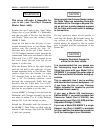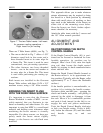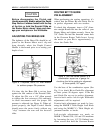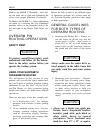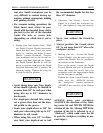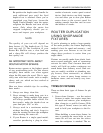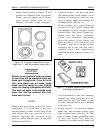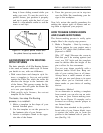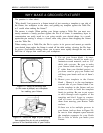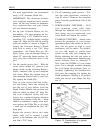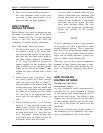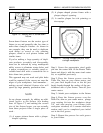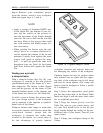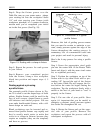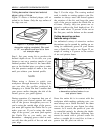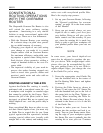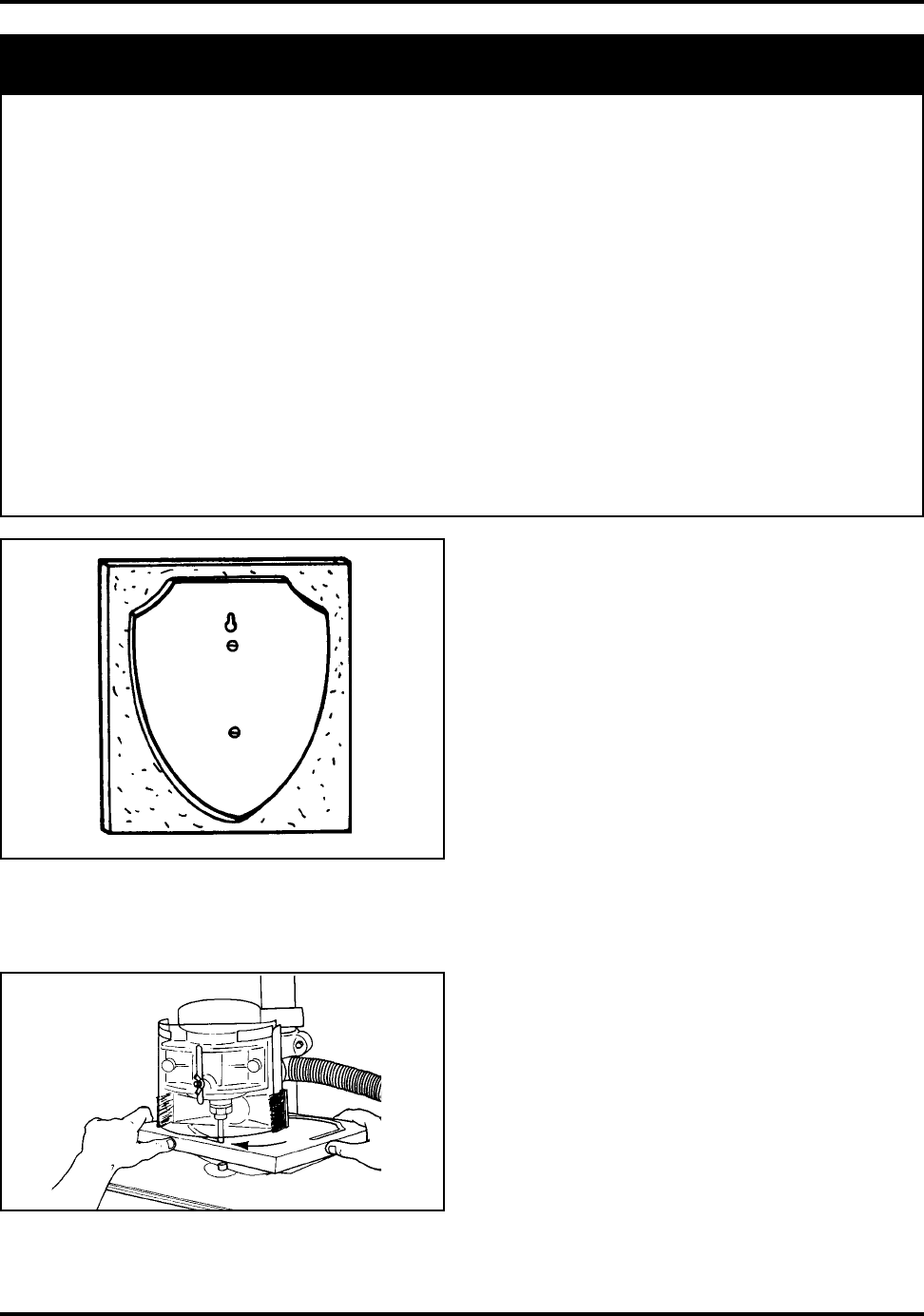
MARK V – MOUNTED OVERARM PIN ROUTER 555970
23
2. Cut out your fixture blank – As men-
tioned, fixtures should be made of a
laminate-covered material, such as 3/4"
thick sink cut-outs. Be sure to make
your fixture blank about 4" longer and
4" wider than your finished project, so
you have room to grip your fixture and
still keep your hands well out of harm’s
way.
3. Mount your template to the fixture
blank – Mount it to the non-laminate-
covered side of your fixture blank. Cen-
ter the template in the fixture and use
screws or nails to hold the template
firmly in position. Be sure to put screws
or nails through each segment of the
template and don’t forget to counter-
sink all screw or nail heads to keep
them from marring your Router Table
surface.
If there are to be multiple grooves in
your fixture (such as those in Figure 10),
be sure to leave adequate space between
the template segments for your Guide
Pin to ride in while you make your
fixture.
Figure 13. Using an existing item
(in this case a plaque) as a template
for making your fixture
Figure 14. Guide the edge of your existing
item against the pin to cut a matching
groove in the laminate side of your fixture.
WHY MAKE A GROOVED FIXTURE?
The question is often asked...
”Why should I cut grooves in a fixture instead of just screwing a template to one side of
the fixture, the workpiece to the other, and guiding my template against the Table Pin,
as I would when making the fixture?”
The answer is simple. When guiding your fixture
against a Table Pin, you must con-
stantly maintain a steady pressure against the Pin at all times. A momentary lapse in
concentration can easily result in a cut going outside your desired shape. As a result,
against-the-pin routing is always a slower, more risky process than dropping the fixture
over the Table Pin.
When routing over a Table Pin, the Pin is captive in its groove and cannot go outside
your desired shape unless the fixture is raised off the table surface, r eleasing the Pin from
its groove. Over-the-Pin routing allows you to move more rapidly through the cut, with
little fear of slip-ups that could ruin your workpieces.



